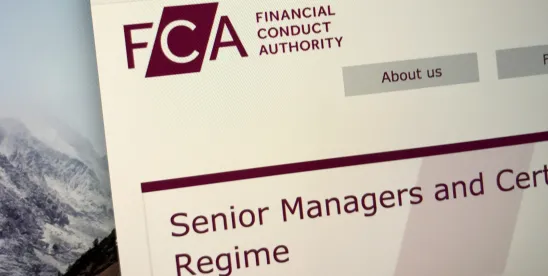The UK Financial Conduct Authority (FCA) has issued a consultation about proposed changes to its Guidance for Insolvency Practitioners. The aim is to clarify existing guidance and provide more information to insolvency practitioners (IPs) on how to deal with regulated firms.
The proposed amendments (shown as track changes in this document) intend to update the current guidance to reflect changes in the legal framework since it was first issued, and to clarify or provide further information to IPs which will assist IPs in dealing with regulated firms.
The more substantive changes intend to deal with, the Consumer Duty and the Court of Appeal decision in Ipagoo, but some of the most practical (suggested) changes to the guidance are these:
It confirms that the FCA expect IPs to know the regulatory requirements regarding the Consumer Duty and makes various additions to the guidance regarding complying with this duty.
Comment: Although we understand that the FCA already expects IPs to act in accordance with the Consumer Duty (which requires firms to act to deliver good outcomes for retail customers) the proposed changes clarify this setting out when and where an IP should consider the requirements of that duty.
If a firm has retail customers, IPs are therefore expected to conduct the affairs of the firm in a way that is compatible with the Consumer Duty. The guidance expects, for example, IPs to identify and devise potential hardship policies, and to design and deliver support to retail customers that meets their needs, including vulnerable customers. However, what it doesn’t do is express how the requirement to act in a way that is compatible with the duty works alongside an IP’s wider duty to act in the interests of creditors as a whole. It would be helpful if the FCA clarified this to avoid a potential tension between the two duties.
This addition is particularly relevant given that from 31 July 2024 the Consumer Duty will apply to more products, included closed products and services.
It proposes to address urgent administration appointments by providing a new email address where requests for consent can be sent.
Comment: This is helpful, although only applies where the intention is for the appointment of administrators to take effect within 48 hours. In other cases, the existing mailbox should be used. That said, in our experience the FCA often respond with 24-48 hours of a request being sent anyway so this is unlikely to make much difference in practice.
It recommends prospective IPs should search the FCA register to determine the status of the firm.
Comment: In practice most IPs will already do this, but it is perhaps also helpful to remember that when checking the register practitioners should check using different variations of punctuation in the name. This isn’t currently reflected in the guidance but can catch practitioners out (because the punctuation is/is not included on the register) leading to a potentially invalid administration appointment.
It adds an additional limb to assessing whether the FCA will consent to the IPs appointment as administrator – whether requisite consideration has been given to the Insolvency Code of Ethics
Comment: In practice, this is unlikely to make a difference because we would expect IPs to have considered this anyway.
It confirms the FCA’s expectations around engagement if a firm is considering entering into an insolvency process (or is already in one)
Comment: In practice we would expect an IP to have engaged with the FCA prior to their appointment and to ensure that the FCA is informed.
It clarifies that the FCA must be notified of the appointment of a liquidator in all types of liquidation (MVL, CVL and compulsory)
Comment: In practice, we would have expected this to be the case.
It adds additional engagement requirements setting out what the FCA expects from an IP
Comment: There is nothing surprising in the list, but it includes notifying the FCA of any issues relating to compliance within the sanction regime.
Concluding Thoughts
The proposed changes are largely helpful in clarifying and tidying up the existing guidance, but generally won’t change much in practice. That said when the amended guidance is published in its final form later this year practitioners should remember to review it to ensure that they are acting in a way that the FCA expects. In the meantime the draft guidance is helpful in indicating the FCA’s current thinking and largely reflects what we would expects IPs to already be doing in any event.




 />i
/>i
